BaFin Regulatory Entity

In this article
A German Financial Authority, Bundesanstalt für Finanzdienstleistungsaufsicht, is abbreviated as BaFin, known as Federal Financial Supervisory Authority. It is located in Germany as an independent federal institution having headquarters in Bonn and Frankfurt. BaFin falls under the supervision of the Federal Ministry of France. BaFin is responsible for 2700 banks, 800 Financial Services institutions and more than 700 insurance undertakings.
What is BaFin?
BaFin is a popular financial regulator in Germany responsible for the effective stability and integrity of the German Financial System. This regulatory entity was established in 2002 to serve as a primary regulator of financial markets and institutions in Germany. It is also well known by its German name Bundesanstalt für Finanzdienstleistungsaufsicht. It was regulated under the Financial Services and Integration Act 2002, by which three Federal agencies were effectively merged to form BaFin. These Financial agencies include Banking Supervisory Office, Security Trading Supervisory Office and Insurance Supervisory Office.
Nowadays, BaFin integrates the regulatory function of all the mentioned agencies. BaFin has authority over all the German’s Banks, Financial Services Companies, Insurance Companies, Stock Exchanges and several other obligated institutions. One of BaFin’s most common roles is to work as a regulator to identify and eliminate Financial Crime. The elimination of Financial Crime is a function that includes the promotion of anti-money laundering in Germany and countering the financing of terrorism.
The BaFin is included in the independent institution the reports directly to the Federal Ministry of Finance in Germany. It is led by a board of 4 executive directors and its single president. As a German Financial Authority and Supervisory Authority in the EU, BaFin maintains two headquarters located in Bonn and Frankfurt. Levies fund the authority on the financial institutions that it regulates and supervises.

BaFin History
BaFin is the Financial regulatory entity established on 1st May 2002 and enacts the Financial Services and Integration Act (German: Gesetz über die Integrierte Finanzaufsicht) (FinDAG). The main aim of this legislation was to initiate a single integrated financial regulator that deals with all financial markets. As mentioned earlier, BaFin was formed by the union of three major supervisory agencies that are located in Germany. These three agencies in German are termed as Bundesaufsichtsamt für das Kreditwesen (BAKred), Bundesaufsichtsamt für den Wertpapierhandel (BAWe), Bundesaufsichtsamt für das Versicherungswesen (BAV)
The integration shows uniform national supervision of banks, credit institutions, insurance companies, brokers, stock exchanges and many other financial service companies. The model of BaFin was first designed to provide transparency and manageability to ensure that all financial activities in Germany are regulated.
Then, in 2003, certain changes in the Banking Act (KWG) increased the responsibilities of BaFin. The BaFin was subjected to monitor the creditworthiness of Financial institutions by collecting all-important and detailed information from these institutions. The main aim of this revision was to enhance customer protection and increase the reputation of Germany’s financial system. The BaFin shares its workload with the Bundesbank. In November 2014, BaFin was in certain transitions after which several responsibilities for banking supervision was transferred to the purview of the European Central Bank
Roles and responsibilities
The main role of BaFin is to ensure the integrity, viability and stability of the German financial sector and to supervise its insurance companies, securities trading and banks.
It is responsible for regulating both the consumers and providers of the financial sector as a market-based regulator. On the provider’s side, it supervises the solvency of financial institutions, banks and insurance companies. On the customer’s side, it is responsible for ensuring the transparency of financial sector activities and operations for the bank customers and investors. In addition, BaFin has the following responsibilities to achieve its objectives:
- Accounts supervision to build an efficient software system to record and store all the information of the accounts and the accounts holders in the financial institutions of Germany.
- Insurance supervision by the Insurance Supervision Law (VAG) to maintain the businesses of insurance companies.
- Banking supervision under the Banking Act (KWG) to monitor financial institutions’ compliance with the regulations and guidelines of the Banking Act.
- Securities supervision under the Securities Trading Act (WpHG) regulates the functions of Germany’s derivatives and securities markets and prevents market abuses and insider trading.
BaFin role in law enforcement
As a law enforcement agency BaFin has a right to initiate legal actions. It has an enforcement power to regulate the laws and regulations in the financial services sector of Germany. It has the following roles in law enforcement activities:
- It has the power to forward criminal and wrongdoing financial acts such as market manipulation, financial fraud, and insider trading and illegal operations of banking to the law enforcement authorities.
- It has a right to suspend the voting right of shareholders in financial services institutions.
- It can appoint an outside regulator to supervise the management of financial firms.
- It can remove the top leaders from their position in the banks.
- It has the power to charge financial penalties and punishment where it finds the suspicion of wrongdoings.
- It also has the authority to resolve disputes in financial institutions.
BaFin core functions
The core function of BaFin is the regulation and administration of Germany’s financial institutions to regulate a stable and safe environment for conducting financial activities. It is responsible for conducting the following regulatory practices under the legislation of Securities Trading Act, German Civil Code, the Insurance supervision Law and the Banking Act:
- Providing licenses to the new financial institutions and banks for conducting financial operations in Germany.
- Collecting and evaluating the financial reports and statements from the financial institutions under Deutsche Bundesbank.
- Regulating its supervisory operations to monitor the compliance of financial institutions activities with the laws and regulations of BaFin.
- Reviewing and auditing financial institutions and banks for assessing their performance.
BaFin AMF/CTF approach
Germany is a member of the global FATF, Financial Action Task Force and regulates its financial market to enforce FATF’s 40 Recommendation rules and regulations. As a global and regional leader of FATF, BaFin has regulated all the policies and practices of the AML/CTF approach in its department to prevent money laundering. It supervises the compliance of financial institutions activities with the Money Laundering Act Authority of Section 50 known as GwG, Geldwäschegesetz in Germany. There are certain requirements for the banks and financial institutions of Germany to comply with the rules and policies of the BaFin AML/CTF approach, which are following:
- To develop a risk-based AML/CTF approach.
- To implement customer due diligence and KYC measures.
- To evaluate new and existing customers for adverse international sanctions.
- To identify the politically exposed persons (PEP).
- To hire an AML officer to supervise the internal AML/CTP program.
Bottom line
BaFin is a regulatory entity established to represent Germany on the global stage as a financial regulator of one of the world’s most effective economic power. BaFin has collaborated with several international bodies such as BCBS and FATF to develop and promote a high standard of the financial sector in Germany.
Jason Morgan is an experienced forex analyst and writer with a deep understanding of the financial markets. With over 13+ years of industry experience, he has honed his skills in analyzing and forecasting currency movements, providing valuable insights to traders and investors.
Forex Content Writer | Market Analyst
Relevant Posts

SFC Regulatory Entity
[top_three_brokers] The Securities and Futures Commission of Hong Kong is known as the SFC. As…
Read more

AFSL Regulatory Entity
[top_three_brokers] AFSL, the Australian Financial Services License, is a legal license issued by ASIC, the…
Read more

MFSA Regulatory Entity
[top_three_brokers] Malta Financial Services Authority- MFSA is the main regulatory body of Malta. It was…
Read more

FINRA Regulatory Entity
[top_three_brokers] FINRA stands for "Financial Industry Regulatory Authority". The US Securities and Exchange Commission is…
Read more

LFSA Regulatory Entity
[top_three_brokers] Labuan Financial Services Authority (Labuan FSA) is responsible for providing financial services in Labuan…
Read more

LSE Regulatory Entity
[top_three_brokers] LSE Group (London Stock Exchange Group) is a global provider of financial market infrastructure…
Read more

VFSC Regulatory Entity
[top_three_brokers] The Vanuatu Financial Services Commission is a regulatory organisation that supervises and regulates Vanuatu's…
Read more

UCRFIN Regulatory Entity
[top_three_brokers] UCRFIN Regulatory Entity (Ukrainian centre for the development of OTC financial instruments and technologies)…
Read more

SIBL Regulatory Entity
[top_three_brokers] The Social Islamic Bank Ltd (SIBL) is a top-leading and renowned second-generation commercial bank…
Read more

FSPR Regulatory Entity
[top_three_brokers] The Financial Service Providers Register is a regulatory entity that has authority over financial…
Read more

SFC Regulatory Entity
[top_three_brokers] The Securities and Futures Commission of Hong Kong is known as the SFC. As…
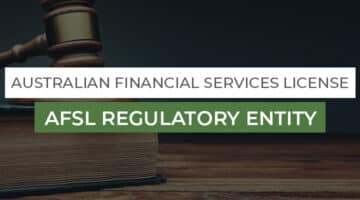
AFSL Regulatory Entity
[top_three_brokers] AFSL, the Australian Financial Services License, is a legal license issued by ASIC, the…

MFSA Regulatory Entity
[top_three_brokers] Malta Financial Services Authority- MFSA is the main regulatory body of Malta. It was…
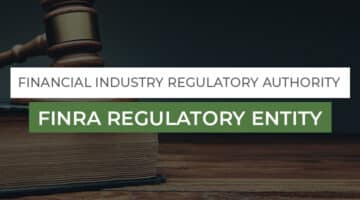
FINRA Regulatory Entity
[top_three_brokers] FINRA stands for "Financial Industry Regulatory Authority". The US Securities and Exchange Commission is…
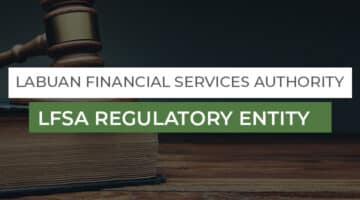
LFSA Regulatory Entity
[top_three_brokers] Labuan Financial Services Authority (Labuan FSA) is responsible for providing financial services in Labuan…
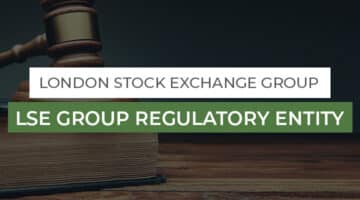
LSE Regulatory Entity
[top_three_brokers] LSE Group (London Stock Exchange Group) is a global provider of financial market infrastructure…
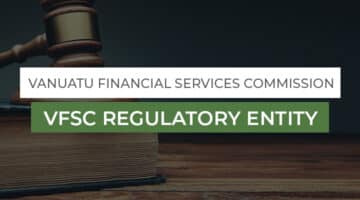
VFSC Regulatory Entity
[top_three_brokers] The Vanuatu Financial Services Commission is a regulatory organisation that supervises and regulates Vanuatu's…
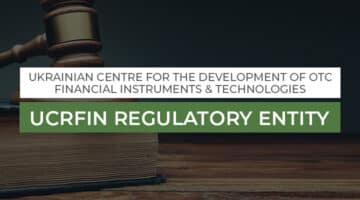
UCRFIN Regulatory Entity
[top_three_brokers] UCRFIN Regulatory Entity (Ukrainian centre for the development of OTC financial instruments and technologies)…
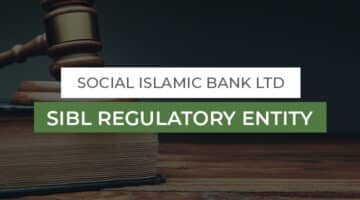
SIBL Regulatory Entity
[top_three_brokers] The Social Islamic Bank Ltd (SIBL) is a top-leading and renowned second-generation commercial bank…

FSPR Regulatory Entity
[top_three_brokers] The Financial Service Providers Register is a regulatory entity that has authority over financial…


